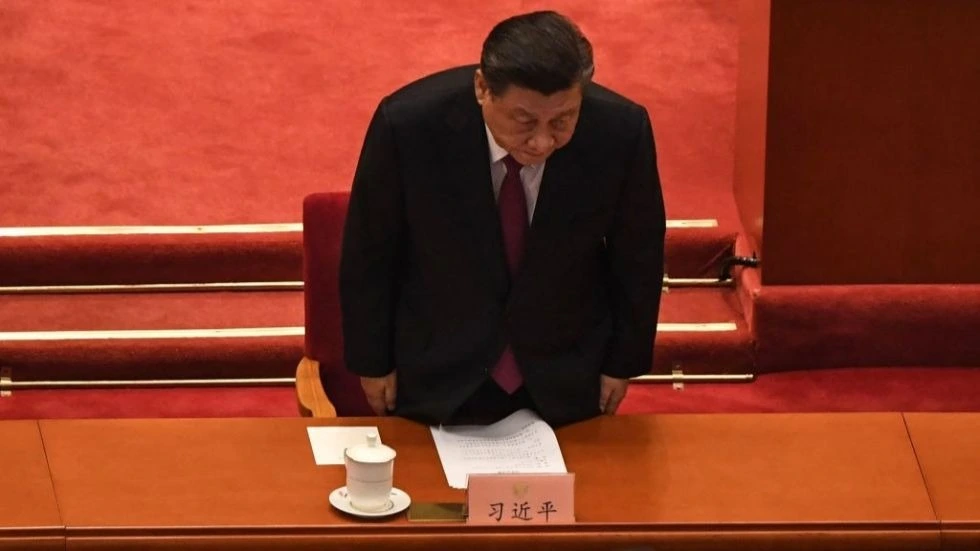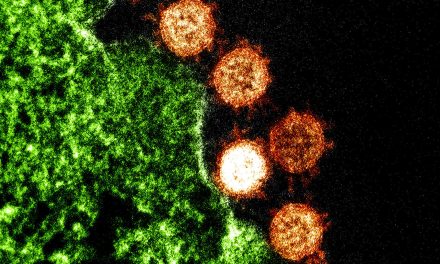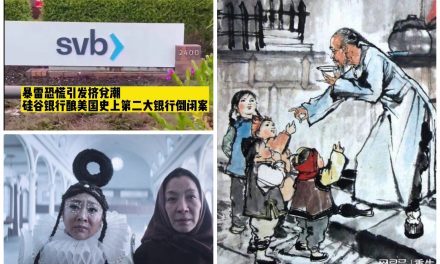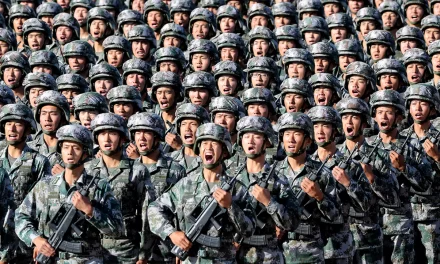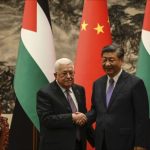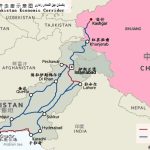– – Monday, July 5, 2021
Not much has been going right for China and its President Xi Jinping since December 2019.
The world took notice of its ruthless actions in Hong Kong, Tibet, and its criminal treatment of Turkic minority Uighur Muslims in Xinjiang, with some defining it as genocide. And then Coronovirus erupted in Wuhan Province, fueling a global pandemic.
Internally, China‘s economy has faced unprecedented challenges and an undercurrent of unrest has emerged because of rampant unemployment. Today, countries always eager to pursue trade with China‘s massive market are reconsidering their relationships. And others angered by China‘s uncalled-for aggression, its neighbors in and around the South China Sea and India, are pushing back. China got caught in a trade and tariff war with the United States. Tempers flared and restlessness is now the norm.
Enter the centenary of the Chinese Communist Party, a calendar occasion President Xi was determined to use to boost his people’s morale. Mr. Xi said the correct things, telling the people they were central to everything concerning China. By the end of his speech, he was ready to lead the CCP towards the second centenary.
The second centenary is in 2049. It will mark the 100th year of the formation of the People’s Republic of China. In his speech on July 1, Mr. Xi admitted to the centrality of the unchallenged position of the CCP to his plans for the party’s march towards the next calendar goal. The march will be in phases as Mr. Xi shifts focus from consolidation of power to innovation of power. The next phase will begin during the 20th national congress of the CCP in October-November, 2022, and the one after that will lead to the 21st congress in 2027. A decade is a small span in the Chinese understanding of time and space.
Mr. Xi‘s “new journey that lies before us” depends on one principle: “We must uphold the firm leadership of the Party. without the Communist Party of China, there would be no new China and no national rejuvenation. The Party was chosen by history and the people. The leadership of the Party is the defining feature of socialism with Chinese characteristics and constitutes the greatest strength of this system .”
There is only one individual, Mr. Xi, who is bigger than the party: “On the journey ahead, we must uphold the Party‘s overall leadership and continue to enhance its leadership.We must uphold the core position of the General Secretary on the Party Central Committee and in the Party as a whole, and uphold the Central Committee’s authority and its centralized, unified leadership.” No beating about the bush; “centralized” the leadership is.
“Any attempt to divide the Party from the Chinese people or to set the people against the Party is bound to fail. The more than 95 million Party members and the more than 1.4 billion Chinese people will never allow such a scenario to come to pass.” The critics are warned.
Mr. Xi said Marxism remained the “guiding ideology,” but “we must continue to adapt Marxism to the Chinese context.” According to the president, the CCP will “continue to develop the Marxism of contemporary China in the 21st century.” How? Is Mr. Xi‘s narrative going beyond even Marxism? “We must uphold and develop socialism with Chinese characteristics. We must follow our own path—this is the bedrock that underpins all the theories and practices of our Party.”
Power comes to the party from the barrel of the gun. Mr. Xi observed that the “Party came to recognize the irrefutable truth that it must command the gun” and said, therefore: “On the journey ahead, we must fully implement the Party‘s thinking on strengthening the military in the new era as well as our military strategy for the new era, maintain the Party‘s absolute leadership over the people’s armed forces, and follow a Chinese path to military development.”
The emphasis of the speech was on the party, not politics. Mr. Xi did not dwell much on issues that disturbed his presidency to no end. He kept his cards close to his heart as he reiterated known positions on Hong Kong and Macao — “we will ensure that the central government exercises overall jurisdiction over Hong Kong and Macao, and implement the legal systems and enforcement mechanisms for the two special administrative regions to safeguard national security” and Taiwan “We must take resolute action to utterly defeat any attempt toward “Taiwan independence,” and work together to create a bright future for national rejuvenation.”
What he left out of his speech was what is vital to him. He did not refer to the Belt and Road Initiative (BRI) or his Indian Ocean strategy the former is his spearhead program to extend the road from China to Eurasia, the latter is something he wants control of. His future emphasis, as he figured the lines of the various silk routes, was on autonomous regions like Xinjiang and Tibet, Ningxia and Inner Mongolia, through which his China Dream proposes to cross the Himalayas into Europe.
Mr. Xi consolidated himself step by step since 2012. First, it was the anti-corruption campaign that netted nearly two million “corrupt” officials of high and low rank he called them “tigers and flies”. It was a euphemism for scuttling dissent. In the run up to the 19th Congress, he created the ground for consolidating his position in the party, getting the two-term limit removed, setting up a new, powerful anti-corruption agency and including his political philosophy “Xi Jinping thought” — in the constitution.
As the 20th Congress comes closer, Mr, Xi is anxious to ensure that no calamity, not even the Coronavirus pandemic and its impact and the global pushback, loosens his grip on the party and the party‘s on the country. The CCP Centenary speech underlines this objective. The president has to ready both the CCP and the Polit Buro for the road ahead after 2022. Between 2022-23, he needs to elevate some of his inner circle members to the highest policy-making body as well as certain key positions in the four, vital autonomous regions. That is perhaps the reason why his entire focus since 2017 was to “condition” the human and other resources in these regions so that the next five years are spent on the laying of the Xi Route to Eurasia. In between, he will need to allow the party to complete the formality of giving him a third term.

